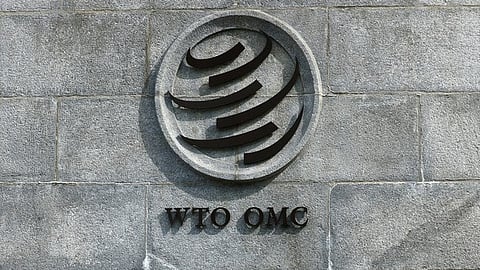

MUMBAI: All agricultural commodity exporters must get eligible tax benefits in sync with the World Trade Organization’s policy guidelines to prevent unnecessary litigation, experts say.
Recently, sugar exporters moved to the apex court to get tax benefits under the Government's Remission of Duties and Taxes on Export Products (RoDTEP) scheme, the rice exporters moved to the Supreme Court after the export was banned.
According to sources, though the Government is in favour of giving a boost to agricultural items, the tax officers are not able to interpret the law in the right manner and send tax notices to the exporters who are eligible for the benefits under foreign trade policy. This has led to several such cases landing in the Supreme Court.
In a recent judgment, the Supreme Court upheld the decision made by the Gujarat High Court regarding the eligibility of Indian sugar exporters for the RoDTEP scheme. In July, the Supreme Court rejected a Special Leave Petition (SLP) filed by the revenue department challenging the Gujarat High Court's order, which favoured the sugar industry.
The Gujarat High Court had determined that Indian sugar exporters qualify for the benefits under the RoDTEP scheme, reinforcing the importance of providing necessary support to the agricultural export sector.
"The central argument is that sugar exports conducted during the designated restrictive period - following the procurement of necessary permissions from the Directorate of Sugar and within the allocated permissible limits - should not be classified as restricted products, thereby justifying access to benefits under the scheme,” said Abhishek A Rastogi, founder of Rastogi Chambers.
“The primary aim of the scheme is to enhance the competitiveness of Indian exporters in the global market. Adopting a narrow perspective on this issue would ultimately undermine the objectives of the foreign trade policy," added Rastogi.
As per Vivek Jalan, Partner at Tax Connect Advisory Services LLP, a pan India multi-disciplinary Taxation Firm, it is a global norm that "duties and taxes cannot be exported".
There are many duties and taxes which are embedded in the export of sugar. For example, no credit is available to sugar exporters of the Central excise, VAT, etc used by transporters to transport the sugar from the factory to the port.
Similarly, there are electricity duties and blocked GST also which, if not remitted back to the exporter, would form a part of the export price of sugar. This would violate the said global norm on the one hand while making the Indian Sugar globally un-competitive on the other hand. Hence, the apex court has rightly ruled in favour of exporters.
The World Trade Organisation (WTO) has been advocating for fair trade practices and the reduction of barriers that hinder the competitiveness of agricultural goods in international markets. The WTO guidelines encourage member countries to support their agricultural sectors.
The Indian Government has introduced a remissions scheme for various embedded taxes on goods that are exported. This is particularly important for sectors like sugar and rice, which have a significant presence in international trade.
However, the implementation of RoDTEP has faced challenges, leading to disputes and legal action by exporters who feel aggrieved by the non-receipt of these benefits.
The recommendation for tax benefits is not only about alleviating current tensions but also about fostering a more robust agricultural export environment. By ensuring that exporters have the financial support they need, the government can potentially increase export volumes, enhance farmers' incomes, and contribute positively to the national economy, says Rastogi.